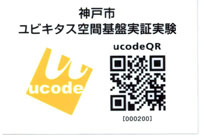Between my family and I, we get a lot of packages delivered to the door. Amazon, Newegg, Forever 17, you name it. So last week when I saw a DHL tag that said “Sorry we missed you”, I checked the delivery time (2:30 in the afternoon, probably the absolute least likely time for anyone to be home) and signed the back to allow the package to be left at the door. The next day the same tag was back on the door with a new note: “Sorry, signature required, can’t leave at the door.” This time the drop off attempt was 3:15 pm.
With couriers it’s two strikes and you’re out. Now it was up to me to go pick it up, or eventually they would return the package to sender. It turned out that my package was at their office in Fremont CA, a 40 minute drive from my home. I had to blow off an hour and a half of my working day to learn that, thankfully, it was not a trendy top for my wife or daughter, but was my renewed passport, which is why it required a signature.
If only there was a way that a package could be addressed to me instead of my address, and I could commit to a location and time window the day before it is delivered. Perhaps I would be at my office instead of home, or maybe at a hotel in Chicago on a business trip and in need of my renewed passport to continue on to Frankfurt.
![]()
The early testing of exactly that capability is what we announced today with Softbank Telecom. Softbank is working with with the City of Kobe to model major changes for the package delivery business in Japan. It really is an antiquated, inflexible system that requires the sender to know where the recipient is likely to be before a package can be statically addressed and sent. If recipients were registered with the carrier, they could easily be notified when a package is coming, and declare a location for the four hour time window the courier supplies. That would eliminate the courrier’s waste associated with redeliveries and the recipient’s costs associated with delays of important deliveries (contracts, parts, etc).

This is such a logical next step for logistics that it is hard to believe that the rest of the world won’t soon follow this model. Not that I don’t love Fremont, but I would much rather have had my passport delivered to my office where I was than write notes to the delivery person and eventually waste time and fuel driving across the bay. Once again, Japan shows us how to innovate with carrier-based services.
Explore other posts from category: Use Cases

 Solace
Solace
